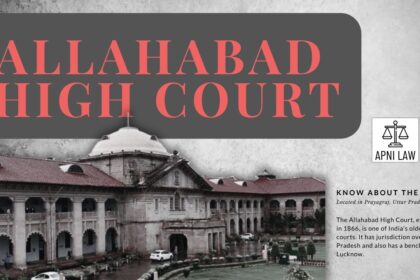Code
(1) With a view to obtaining the evidence of any person supposed to have been directly or indirectly concerned in or privy to an offence to which this section applies, the Chief Judicial Magistrate or a Metropolitan Magistrate at any stage of the investigation or inquiry into, or the trial of, the offence, and the Magistrate of the first class inquiring into or trying the offence, at any stage of the inquiry or trial, may tender a pardon to such person on condition of his making a full and true disclosure of the whole of the circumstances within his knowledge relative to the offence and to every other person concerned, whether as principal or abettor, in the commission thereof.
(2) This section applies to–
(a) any offence triable exclusively by the Court of Session or by the Court of a Special Judge appointed under the Criminal Law Amendment Act, 1952 (46 of 1952);
(b) any offence punishable with imprisonment which may extend to seven years or with a more severe sentence.
(3) Every Magistrate who tenders a pardon under sub-section (1) shall record–
(a) his reasons for so doing;
(b) whether the tender was or was not accepted by the person to whom it was made, and shall, on application made by the accused, furnish him with a copy of such record free of cost.
(4) Every person accepting a tender of pardon made under sub-section (1)–
(a) shall be examined as a witness in the Court of the Magistrate taking cognizance of the offence and in the subsequent trial, if any;
(b) shall, unless he is already on bail, be detained in custody until the termination of the trial.
(5) Where a person has accepted a tender of pardon made under sub-section (1) and has been examined under sub-section (4), the Magistrate taking cognizance of the offence shall, without making any further inquiry in the case–
(a) commit it for trial–
(i) to the Court of Session if the offence is triable exclusively by that Court or if the Magistrate taking cognizance is the Chief Judicial Magistrate;
(ii) to a Court of Special Judge appointed under the Criminal Law Amendment Act, 1952 (46 of 1952), if the offence is triable exclusively by that Court;
(b) in any other case, make over the case to the Chief Judicial Magistrate who shall try the case himself.
Explain it
This section empowers the court to offer pardon to an accomplice in exchange for their testimony against the principal offender(s). The pardon can be a full pardon (absolution from all criminal liability) or a conditional pardon (where the accomplice may be granted immunity from prosecution for the specific offense but may still be liable for other offenses).
The purpose of this section is to:
- Obtain credible evidence: By offering a pardon, the court can incentivize an accomplice to provide truthful information about the crime and the other involved parties.
- Secure a conviction: The accomplice’s testimony can be crucial in proving the guilt of the principal offender(s).
- Promote justice: By allowing the accomplice to escape punishment for their role in the crime, the court can ensure that the principal offender(s) are held accountable.
Illustrate it
Imagine a case where A, B, and C plan and execute a robbery. A and B are apprehended, but C manages to escape. The court can offer a pardon to B in exchange for their testimony against A and C. If B accepts the pardon and provides valuable information leading to A’s conviction, B may be granted immunity from prosecution for the robbery.
4. Common Questions and Answers
Q: Who can tender a pardon?
A: The court can tender a pardon to an accomplice under Section 306 CrPC.
Q: Can an accomplice be pardoned without their consent?
A: No, the pardon must be accepted by the accomplice. They can choose to reject the pardon and face prosecution.
Q: What conditions can be attached to a conditional pardon?
A: The court can impose various conditions on a conditional pardon, such as cooperating with the investigation, providing truthful testimony, or serving a specific sentence for a lesser offense.
Q: What happens if an accomplice provides false information after accepting the pardon?
A: If the court finds that the accomplice has provided false information, the pardon can be revoked, and they can be prosecuted for the original offense and any other relevant offenses.







